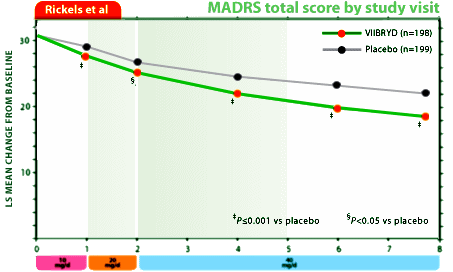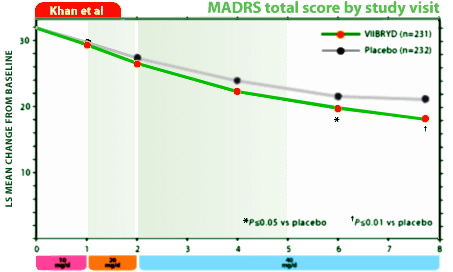 Back in the later days of college and early medical school [early to mid 1960s], I had to put my passion for literature aside and concentrate on a endless diet of science. But there was one thread that I kept alive even then – the American authors of the generation before – particularly the Southern authors, Tennessee Williams, Robert Penn Warren, Thomas Wolfe, Allen Tate, William Faulkner, Carson McCullers, Flannery O’Connor. For me, it was the time of the Civil Rights Movement and I was in Memphis Tennessee. I guess I thought that somewhere in those books I might find some understanding of the place where I’d grown up [and still call home]. It was Faulkner that captured me. The gothic epics of his flawed characters remain etched in my memory – ambitious proud men headed for decline. And I think I did come to see the subculture of racism and violence in our Southern world as the heirs to the hubris and folly of the generations from an earlier century. It seemed to me that those authors were driven to reaffirm Aristotle’s formula for tragedy – a character flaw that seems small at the beginning of the story, but ended up bringing about the downfall of the protagonists and the generations that followed.
Back in the later days of college and early medical school [early to mid 1960s], I had to put my passion for literature aside and concentrate on a endless diet of science. But there was one thread that I kept alive even then – the American authors of the generation before – particularly the Southern authors, Tennessee Williams, Robert Penn Warren, Thomas Wolfe, Allen Tate, William Faulkner, Carson McCullers, Flannery O’Connor. For me, it was the time of the Civil Rights Movement and I was in Memphis Tennessee. I guess I thought that somewhere in those books I might find some understanding of the place where I’d grown up [and still call home]. It was Faulkner that captured me. The gothic epics of his flawed characters remain etched in my memory – ambitious proud men headed for decline. And I think I did come to see the subculture of racism and violence in our Southern world as the heirs to the hubris and folly of the generations from an earlier century. It seemed to me that those authors were driven to reaffirm Aristotle’s formula for tragedy – a character flaw that seems small at the beginning of the story, but ended up bringing about the downfall of the protagonists and the generations that followed.
What would send me down such a long forgotten path? Oddly enough, it was the Viibryd story that I’ve been following for a few days. It felt like one of those later Faulkner novels to me – the ones where the descendents were living out the sins of their fathers without really knowing how it all started, where it came from. A small company hoping to jump on the biotechnology/genomic bandwagon using biomarkers to select treatment got hold of a discarded SSRI patented by Merck and dropped by GSK. They set out to do a clinical trial and use biomarkers to select responders – the kind of dream Brain Resources and Trivedi’s NIMH studies are after these days. They apparently got nowhere with biomarkers, but their study showed an antidepressant response, at least using the commercial group of Clinical Research Centers they’d picked. So they did the same study again, using many of the exact same CRCs as before. Dr. Carol Reed, a former ICU Pulmonologist who’d been there from the start was by this time a VP and a Principle Investigator. They published their results under authorship of the doctors from the CRCs, and rolled it out at medical meetings. They got it approved by the FDA in short order and then sold the whole lot to Forest Laboratories whose blockbuster LexaPro was going off patent. The whole thing driven by profit/loss sheets, quarterly reports.
On Wall Street, such stories are told as rags-to-riches fairy tales. I’m afraid the medical/scientific version would be more the stuff of William Faulkner or Carson McCullers – grotesque. Does it not occur to someone that a bunch of commercial Clinical Research Centers working for a biotech company doing the same study twice in a row, then authoring the papers and meeting posters themselves might be a tad suspect without independent corroboration? all authors on both papers being involved in getting the drug through the FDA? And beside the epidemic Conflicts of Interest, how often does the staff of the FDA that evaluated the drug publish a paper questioning the claims made by the drug’s advertisements? The only psychiatrists involved with this drug were those guys who run Commercial Clinical Research Centers. The drugs used in the studies were produced by overseas contract. Their advisory board is populated with the usual suspects – CRC doctors and Pharma friendlies: Anita Clayton, Andrew Cutler, Alan Gelenberg, Arif Khan, Susan Kornstein, E. David Leonardo, Andrew Nierenberg, Angelo Sambunaris, Ward Smith, Stephen Stahl, Michael Thase, and Madhukar Trivedi. The new drug ended up in PHARMA’s hands through the efforts of a Wall Street deal-maker with response graphs that look like this:


It’s a long fall from the salad days of the 1980s when psychiatry declared itself to be a biological, rigorously scientific, evidence-based, specialty standing on the threshold of a revolution, collaborating with industry for the conquest of mental illness. We all know about the numerous tragic flaws that seeded those early grand plans and lead us down to today where most psychiatrists spend their time prescribing drugs such as this one, and sometimes know more about the current pharmaceutical pipelines than their patient’s lives.

-
Patients that have taken an investigational drug or participated in an investigational drug trial within the past 30 days.
But in writing this post so far, I’ve also figured out why I’ve got William Faulkner and those Southern writers on my mind. I grew up and remain a Southerner. In early adolescence, I woke up to the fact that there was something terribly wrong here. It was much more than just Segregation, but that was the part that showed. Like a lot of us, I spent my later adolescence and beyond working to change what wasn’t right, but the conflict between pride and shame remains as alive in me today as then, in spite of my own efforts and the palpable changes in this part of the world. I think those writers I loved to read felt the tragedy in that conflict, and that’s why I was drawn to them – still am.
Wonderful stuff Mickey. A very courageous post. I’m not at all surprised you are a true believer in art. I’ve always noticed a thread of philosophy and history in your posts, which is very refreshing to read. I’m sure you know that most physicians don’t exactly have much of an interest in the arts! HOW MUCH foolishness and outright pain could have been avoided if doctors had a historical and philosophical insight? It always steams me when people think that philosophy, art, and history are “useless.” On the contrary; we need them more than ever.
Your shame/pride as a Southerner and psychiatrist is intriguing. I’m a Yankee (Massachusetts specifically) and recently spent three years in Texas, so I know a little of what you’re talking about. I think a large part of the (frankly ridiculous) Texas pride stems from a deep-seated inferiority complex and sense of shame about their redneck heritage and how “intolerant” that region of the country was/is. Heh, I think this can actually explain a lot of the chest-puffing that psychiatry engages in! That is, psychiatry too has an inferiority complex and desperately wants to be a “real” medical specialty, so it concocts ridiculous claims.
Returning to the South: I was constantly reminded of the Randy Newman album “Good Old Boys” when I was in Texas. Do you know the album? It’s a remarkably nuanced portrait of the South from the perspective of a California Jew who would as a child go on family trips to New Orleans and just be mystified (and fascinated) by the South. It plays like Newman’s statement about the South.
If you listen to the album closely, you realize it’s a remarkably fair and three-dimensional portrait of the South (warts and all), and come to understand that Southerners aren’t inherently bad, just ignorant sometimes (as we all are — Newman implicitly calls out the North in the album for being equally racist as the South, but just being more sophisticated at it).